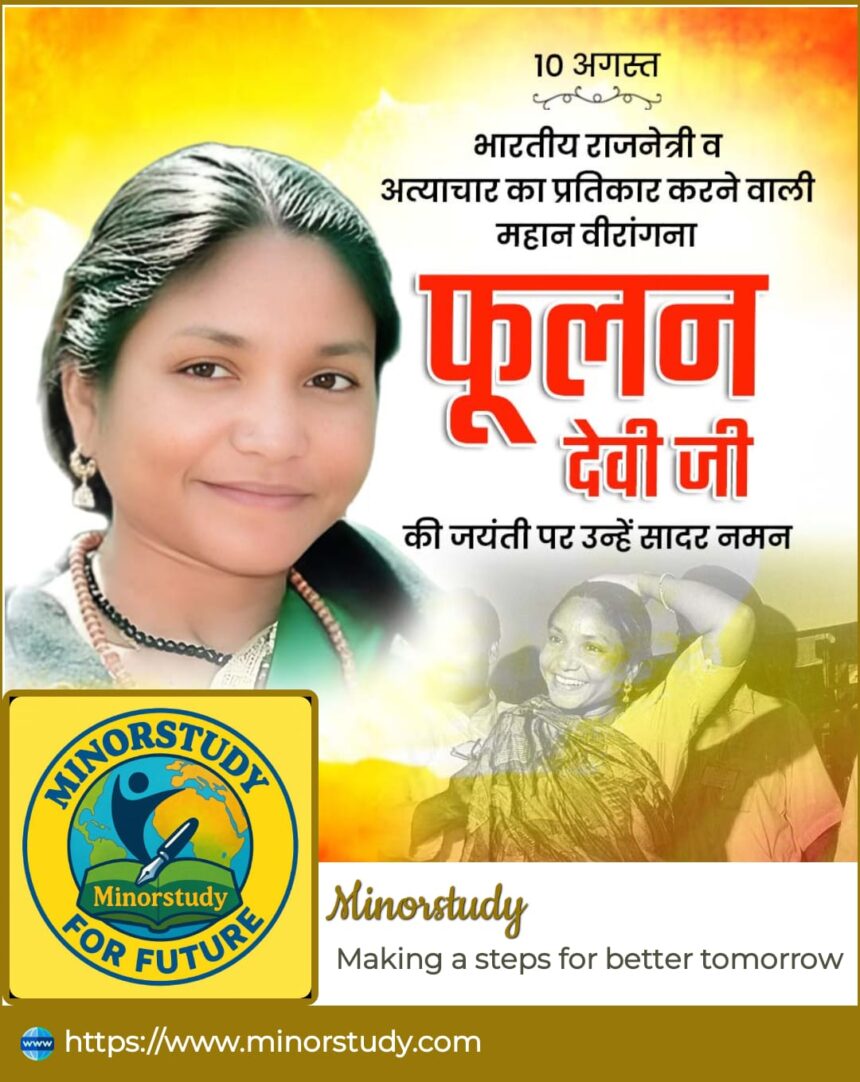Introduction
Phoolan Devi, famously known as the Bandit Queen of India, remains one of the most compelling and controversial figures in Indian history. Her life story—marked by adversity, courage, and transformation—has fascinated millions worldwide. From a victim of social injustice to a fearless rebel and later a respected politician, Phoolan Devi’s journey reflects deep social realities and the complex interplay of power, gender, and justice in Indian society.
- Introduction
- Early Life and History of Phoolan Devi
- Timeline of Important Events in Phoolan Devi’s Life
- 11 Powerful Facts About Phoolan Devi
- FAQs About Phoolan Devi
- Significance and Impact of Phoolan Devi’s Life
- How to Observe or Remember Phoolan Devi
- Wishing and Reflecting on Phoolan Devi’s Legacy
- Important Points and Conclusion: Daily Life Impact and Society
In this article, we will explore her complete history, key facts, FAQs, timeline, significance, societal impact, and the lessons we can draw from her life. Whether you admire her courage or criticize her methods, her story is undeniably important for understanding the struggles of marginalized communities in India.
Early Life and History of Phoolan Devi
Phoolan Devi was born on August 10, 1963, in a small village called Gorha Ka Purwa in Uttar Pradesh, India. She belonged to the Mallah caste, a lower caste often subjected to social discrimination and poverty. Her childhood was tragic; she faced early abuse and was forced into marriage at a very young age. Her life took a dark turn when she was subjected to severe harassment and exploitation by upper-caste men.
Seeking justice and retribution, Phoolan Devi joined a gang of bandits in the Chambal region. She quickly became a powerful figure, eventually leading her own gang. Her story includes episodes of violence, including the infamous 1981 Behmai massacre, which has been both condemned and seen as an act of revenge.
Timeline of Important Events in Phoolan Devi’s Life
1963: Born in Gorha Ka Purwa, Uttar Pradesh.
1972: Married at the age of 11 to a much older man; suffered abuse.
Late 1970s: Joined a bandit gang in the Chambal valley.
1981: Involved in the Behmai massacre as an act of retaliation.
1983: Surrendered to the Indian government after several years on the run.
1994: Elected as a Member of Parliament representing Mirzapur.
2001: Assassinated in New Delhi.
11 Powerful Facts About Phoolan Devi
Bandit to Politician: After surrendering, Phoolan Devi transformed her life and became an elected Member of Parliament.
Symbol of Resistance: She became a symbol of resistance for women and lower caste communities.
Subject of International Films: Her life inspired several films and books, including the internationally acclaimed movie Bandit Queen.
Victim of Social Injustice: Phoolan Devi’s life highlighted caste-based violence and gender oppression in India.
Survivor of Abuse: She survived brutal abuse and discrimination, which fueled her fight against injustice.
Surrender Terms: Her surrender was negotiated with government assurances for her safety and leniency.
Political Career: As a politician, she focused on issues of poverty, caste discrimination, and women’s rights.
Multiple Assassination Attempts: She survived multiple attempts on her life before her eventual assassination.
Legacy: She remains a controversial yet iconic figure in Indian history.
Representation: Her life story opened discussions about the plight of marginalized women in rural India.
Cultural Impact: Phoolan Devi has inspired countless activists, writers, and filmmakers to explore issues of caste and gender.
FAQs About Phoolan Devi
Q1: Why was Phoolan Devi called the Bandit Queen?
A: Because she led a gang of bandits in the Chambal valley and was involved in several high-profile robberies and acts of rebellion.
Q2: Did Phoolan Devi commit crimes?
A: Yes, she was involved in criminal activities, but many see her actions as a response to social injustice and personal trauma.
Q3: How did she enter politics?
A: After surrendering to the government and serving some jail time, she was elected as a Member of Parliament representing Mirzapur.
Q4: What is her significance in Indian society?
A: She symbolizes the struggle of women and lower caste communities against oppression and violence.
Q5: How did Phoolan Devi die?
A: She was assassinated in 2001 by unknown assailants outside her residence in New Delhi.
Significance and Impact of Phoolan Devi’s Life
Phoolan Devi’s life represents the complexities of social justice in India. She exposed the brutal realities of caste discrimination, gender violence, and poverty. Her transformation from a feared bandit to a lawmaker demonstrates the potential for redemption and social change. She also brought the conversation about women’s rights and marginalized communities into the national spotlight.
Her story has inspired social reformers, feminists, and activists to push for better protection and empowerment of vulnerable sections of society. Moreover, Phoolan Devi’s narrative challenges us to think deeply about the causes behind crime and violence and the role of societal structures in fostering such conditions.
How to Observe or Remember Phoolan Devi
While there is no official day to observe Phoolan Devi, many activists and social groups honor her legacy through:
Discussions and seminars on caste and gender issues.
Screenings of films and documentaries about her life.
Advocacy for women’s rights and marginalized communities.
Commemorations on her birth and death anniversaries.
Wishing and Reflecting on Phoolan Devi’s Legacy
On remembering Phoolan Devi, one can wish for a society where no one suffers from oppression or injustice like she did. Her life urges us to work towards equity, justice, and dignity for all, especially women and lower caste communities. May her legacy inspire courage and resilience to overcome adversity.
Important Points and Conclusion: Daily Life Impact and Society
Phoolan Devi’s story has practical implications for our daily lives:
Awareness: Understanding caste and gender discrimination helps build empathy.
Justice: Her life urges vigilance against social injustice.
Empowerment: She remains a role model for fighting oppression.
Policy: Her political career highlights the importance of representation.
Culture: Her life challenges social norms and provokes debate on morality and justice.
In conclusion, Phoolan Devi’s life is a powerful narrative of pain, courage, and transformation. Though her methods were controversial, her impact on society’s consciousness about social inequality is undeniable. She remains a symbol of resistance and hope for many, reminding us that change often comes from the most unlikely places.








